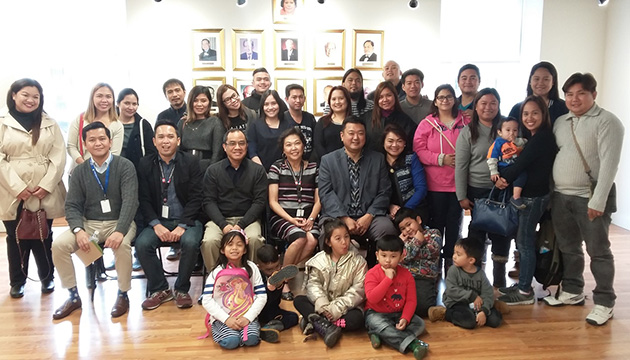You speak very good English. Where are you from?
* English is a very easy language to learn. I learned it on board the plane on my way here.
The first line may strike one as a real compliment yet subtly questions one’s facility of the language; the second, a fun way to show the colonial history of more than half of the globe.
This is how we do things here.
Is that right? Let me show you how I do it in my home country.
The first remark hints at the speaker’s sense of superiority; the reply, a call for acceptance in a level playing field.
Do you self-identify as a member of the visible minorities (VM)? Statistics Canada's VM classifications are based on “Employment Equity Act”.
Why are we referred to as VM?
The first question suggests a move toward equitable representation of immigrant groups in jobs yet implies a preferential funnel for those perceived as the visible majority of longtime immigrants from England, Europe, and the US.
The rejoinder wishes to clarify federal and provincial policies that have, since the 1990s and due to Canada’s graying population, opened doors of migration to three major source countries of migration: China, India, and the Philippines.
Do you have Canadian experience?
Whatever happened to meritocracy?
The first line sounds ignorant of the world class quality of skilled immigrants who scored high in the points system of Citizenship and Immigration Canada, and presents Canadian experience as the benchmark of fine performance.
The response line asserts the universal right to move to Canada after meeting the host country’s immigration criteria.
These exchanges have been commonplace, woven and hung onto one unseen yet hovering tapestry known as racism. The sublines or what appears as anti-racist comments, on the other hand, pose a huge question mark on Canada’s multiculturalism policy that has been challenging Canada to walk its talk since the 1970s. Racists, mostly coming from former colonizing countries, wield vestiges of power and superiority in culture, language, occupation, and skin colour, among many.
So how do we rat out racists?
First, let racists know how much they are missing out on the variety and uniqueness of our languages spoken in more than 7,100 islands. Educate racists on the lyrics and cadence of our songs that speak of harmony and unity in diversity.
Second, show racists that our country has its own culture even before it was colonized by Spain, England, Japan, and the US. Alberta’s month-long observance of Filipino Heritage every June presents an opportunity to show the richness of our country’s culture in pre-colonial years.
Third, continue pointing out to racists how Filipino immigrants make up the majority of Canada’s immigrants since the 1990s. Filipinos’ nurturing ways and sense of professionalism have contributed much to Canada’s economy and have cushioned Canada from severe economic drought.
Fourth, continue to be exemplars of excellence, fortitude, hard work, and strength of character. Show racists that Filipinos got what it takes to come to Canada and to make it a better place for Filipinos and non-Filipinos alike.
Ratting out racists takes time, energy, and perseverance. Ratting out racists cautions against becoming racists ourselves.
*Special thanks to Professor Emerita Leticia H. Tison of UP Diliman, my professor in higher speech communication courses in the early 1980s, who shared her interesting experiences with some Americans who might not have the privilege of travelling outside the United States. I immortalize her lines in this article; however, her lines were originally shared within the context of Filipinos’ excellent command of English, and not in defense against perceived racism.













